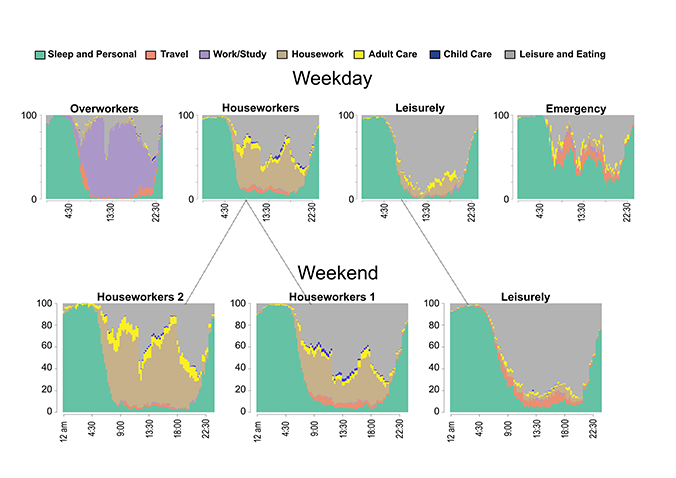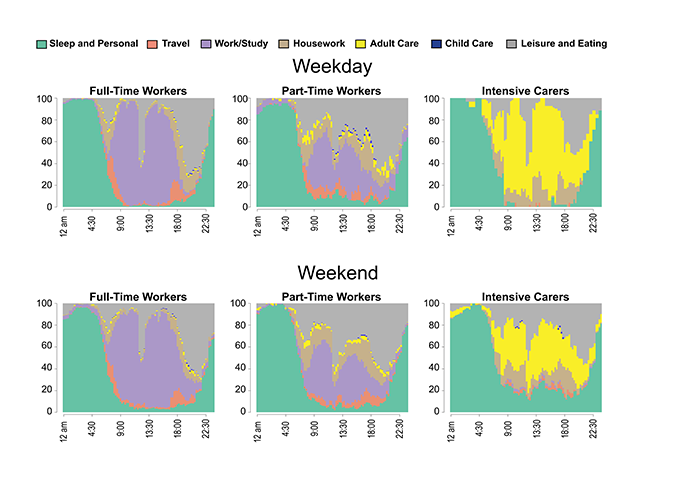Project information
- Category: Visualization | Publication Graphs
- Software: R
- Project URL: Link to the article
Sequence Analysis of Family Caregivers' Time Use
In Japan's super-ageing society, family caregivers fall primarily into categories based on paid work, housework, and leisure time. The majority of caregivers are 'Houseworkers', predominantly women, spending significant time on housework and care, indicating a gender inequality in caregiving and a need for support. About 46% of caregivers are classified as 'Workers' on weekdays, further divided into ‘Overworkers’, ‘Full-time Workers’, and ‘Part-time Workers’ based on hours committed to paid work. The study also identifies 'Intensive Carers' who provide eldercare for nearly 9.5 hours daily.
The visualization highlights the varying patterns of family caregivers on weekdays versus weekends. For instance, while 'Leisurely' caregivers allocate similar amounts of time to leisure on both weekdays and weekends, their diaries indicate a greater combination of leisure and travel during weekends. Moreover, the increased housework load (for 'Houseworkers') highlights a potential disparity in roles and responsibilities, often shouldered by women. Addressing these patterns can lead to more equitable caregiving roles and ensure that caregivers don't face burnout, improving the overall quality of care for their loved ones.

